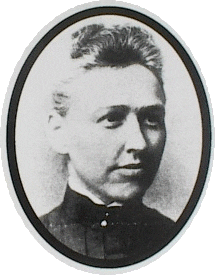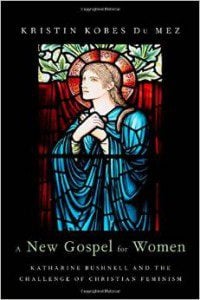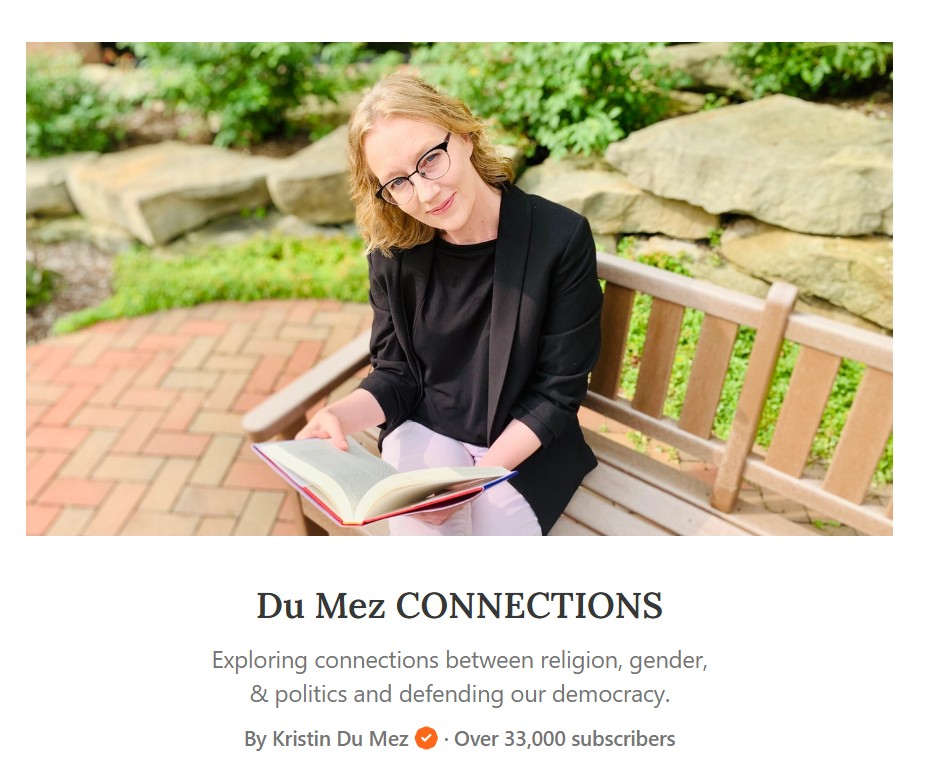As you may have heard, Princeton Seminary decided to award Tim Keller the prestigious Kuyper Prize for Excellence in Reformed Theology and Public Witness. But then it revoked that honor after an outcry from faculty, students, and alumni who objected to Keller’s defense of complementarian theology and to his opposition to the ordination of women and LGBT individuals.

All of this has raised a host of questions:
Would Abraham Kuyper himself be eligible to receive an award named in his honor? Does Princeton’s about-face stifle academic freedom? Does this prove that liberals are every bit as close-minded as conservatives, if not more so? Can’t we all just get along?
One of the most outspoken critics of Princeton’s decision to honor Keller has been Carol Howard Merritt. At her Christian Century blogshe denounced Keller’s complementarian theology as “toxic,” and castigated Keller as “one of the loudest, most read, and most adhered-to proponents of male headship in the home.”
And she raised a provocative question: Does teaching submission encourage abuse? In other words, what is the “relationship between domestic violence and the Christian teaching that wives must submit?”
“Biblical womanhood, headship, and male authority,” Merritt wrote, “teaches women that they have no right to choose…well…anything.” From where they go to how they school their children to when they have sex to how she looks, a man is in charge. “And if a woman questions that authority, the full force of the church community, their social connections, and their Christian doctrine backs him up.” This, according to Merritt, is nothing short of abuse.
Not surprisingly, many complementarians take issue with this characterization. But Merritt is standing her ground, insisting that abuse is in fact the proper term.
In listening in on this conversation, I couldn’t help but think of a woman who reached much the same conclusion, over a century before Merritt waded into these waters.
The year was 1899. Katharine Bushnell, a devout Methodist, a medical doctor, former missionary, and internationally-known anti-trafficking activist, had spent the summer poring over the scriptures.
The reason? After laboring for over a decade to combat the abuse of women and the mistreatment of prostitutes in the United States, and throughout the British Empire, Bushnell had come across a startling story reported in a number of British newspapers. It was an account of the brutal rape of a Burmese woman, perpetrated in broad daylight by a dozen British soldiers, within sight of around thirty other soldiers, none of whom bothered to intervene.
Bushnell had long worked with prostitutes, and she was no stranger to atrocities committed against women. But this particular act of violence affected her profoundly. Here we had Christian men—men purportedly representing “Christian civilization”—treating a dignified, elderly woman with reprehensible cruelty.
It wasn’t the first time she had encountered Christian men abusing women, or “respectable” Christians defending such men. In fact, she had encountered so much opposition from Christians in her efforts to advocate for prostitutes and other “fallen women” (a term she herself rejected), that she finally had to consider if there was something within Christianity that led men to abuse women.
And that’s why she was searching her Bible in the summer of 1899. It was in a remarkable letter to her friend and fellow activist, Josephine Butler—a letter now stashed away in an archive in London—that I came across Bushnell’s answer to this question.
Yes, she concluded. Christianity itself, as it had been practiced and preached, did in fact condone the abuse of women. In her reading of the Bible, she had to concede that the Scriptures appeared to teach that “the sexual abuse of wife by husband was ordained by God at the fall of Eve.”
Anticipating objections she defended her use of the term “abuse,” insisting that subordination was abuse.
In my book on Bushnell, I recount how she came to this conclusion:“Man would feel abused if enslaved to a fellow man,” she argued, and the same was true of women, even if theologians liked to consider women’s subjugation “the happiest state in which a woman can exist.” (She noted, too, that it was “the male theologian and not the female victim who pronounces the state a happy one.”) And yet by deeming that “happy state” the result of sin and the source of woman’s sorrow, theologians revealed the contradictory nature of their own teachings. Instead, she asserted that what theologians taught to be “the God-ordained marriage relation between man and woman” in fact robbed women of their “will and wishes,” and amounted to nothing less than “the sexual abuse of the wife by the husband.” She marveled that theologians had long championed a teaching “in essence contrary to good morals and defiant of the Lord’s law ‘whatsoever ye would that men should do unto you, even so do ye also to them.’”
Reflecting on the rape of the Burmese woman, Bushnell wondered how people might respond if each of the perpetrators had stated clearly their “Christian(?) beliefs, that “solely because ‘Adam was created first, then Eve’ and because Eve ‘being beguiled hath fallen into transgression,’” woman had been cursed in the subordination of her sexual appetite to man’s whim and caprice in the marriage relation.”
Why would men who might be heathens, blasphemers, drunkards, or adulterers be given authority over women? She found it far-fetched that “the God of truth and justice” would put “all this honor upon the male simply because he is a male,” and place “humiliation and abuse and sorrow…on the female, simply because she is a female.”
Male headship, she insisted, was simply the notion through which men claimed for themselves all sorts of privileges, effectively giving free reign to their own egotism:
This “masculine egotism” had produced “a whole fossilized system of theology, which makes one half the human family some resplendent glory which the other half is appointed to reflect and manifest forth…–and this glorified and spiritualized half of humanity is so glorified and spiritualized—and appointed to teach theology and the love of God to the other half—not because of the nature of his moral or spiritual character at all; but merely by the nature of his physical body,–solely because he is a male!”
But the act of rape perpetrated by Christian men against the Burmese woman ought “to spoil all such theology as that.” In fact, she claimed, such theology was not far removed from such acts of violence against women:
“The crime is indirectly the fruit of the theology, since if theology teaches the enslavement of woman to man inside the marriage relation; that law of sin which forbids its regulation by law at all—causes this abuse and injustice to leap the bounds which a mistaken theology would throw around it to keep it within marriage relations… Men cannot make unquestioning, obedient slaves of wives only—sooner or later the iniquity of slavery will be visited upon the head of unmarried women also; for iniquity knows not the name of restriction.”
At a time when many Western Christians liked to boast of the liberation of Christian women when compared to the drudgery of “heathen” women, Bushnell countered that traditional, patriarchal Christianity in fact perpetuated the abuse of women.
After a careful study of the scriptures, however, she became convinced that patriarchy was not God’s will for humankind. Rather, misogynistic translators and interpreters had skewed the gospel message. Rightly translated and interpreted, she argued, the Bible offered a revolutionary message for women: a rejection of patriarchy, and a path to true liberation.
She spent the rest of her life making this case. It’s worth noting that she did so while remaining a committed Christian, one who insisted on the authority of the scriptures, and one who adamantly rejected theological modernism. (In fact, she came to identify as a fundamentalist by the 1920s).
What happened to Bushnell, and to the remarkable theology she produced? You can find the rest of the story in A New Gospel for Women: Katharine Bushnell and the Challenge of Christian Feminism.
But when it comes to the Keller controversy, and to the objections women like Merritt are raising, it may be worth taking Bushnell into consideration.
Is this a question of orthodoxy vs. liberalism? Of historical Christianity vs. the inroads of newfangled secular feminism? Or is there a place for a critique of “traditional,” patriarchal Christianity that is securely situated within the bounds of orthodoxy, and within historical Christianity itself?
Perhaps, when the dust clears, when Keller has come and gone (he is speaking at Princeton today, sans award), and when the seminary has figured out what to do with a now tarnished prize, we can find time to talk about some of the underlying questions that matter most. And when we do, I think we can find both wisdom and inspiration in the work of Katharine Bushnell.
Cite:
Du Mez, Kristin Kobes. “Is Complementarian Theology Abusive to Women?” Anxious Bench, Patheos. April 6, 2017.





